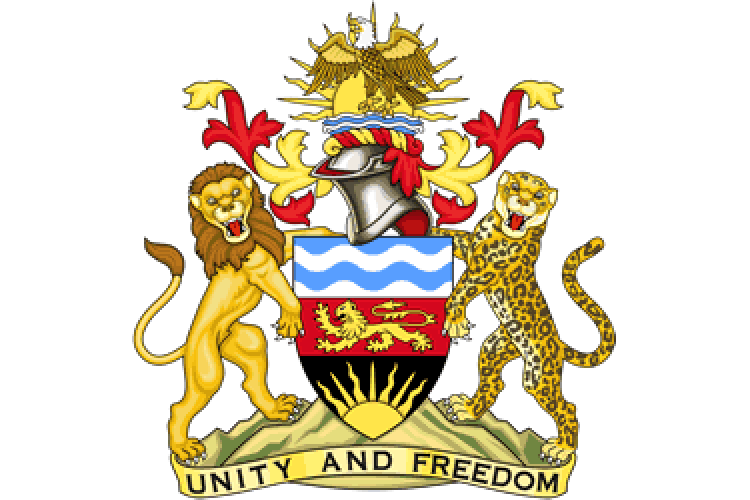The Ministry of Lands, Housing and Urban Development (MoLHUD) was established to administer and manage land housing issues by ensuring equitable access and secure tenure to land and housing for everyone. Thus, the Ministry is the custodian of the Malawi National Land Policy and Land Laws in the country
Mandate
The mandate of the Ministry is to provide land and housing management services to the general public, stakeholders and parties seeking the services in a manner that ensures that physical development takes place in an orderly and sustainable manner
Vision
Equitable access and secure tenure to land and housing for all
Mission statement
To create an enabling environment for efficient, effective and sustainable provision of land, housing and urban development services to the general public in order to promote and encourage sustainable development
Departments
The Ministry has five technical Departments namely;
- Department of Survey
- Department of Lands and Valuation
- Department of Physical Planning
- Department of Housing and
- Department of Urban Development
Currently, the Ministry is currently implementing Land Reform Programme to enhance tenure security, promote meaningful investment, competitive and the innovative use of land, access to credit, and improve transferability. Through this programme, the MoLHUD is involved in a number of projects and initiatives being implemented by the Malawi Government, such as the Agricultural Commercialization (AGCOM) project
The Ministry’s Role in AGCOM
The Ministry of Lands, Housing and Urban Development (MoLHUD) is one of the implementing partners of the Agricultural Commercialization project (AGCOM) which is under the Ministry of Agriculture, Irrigation and Water Development (MoAIWD). The Ministry is participating in component II of the AGCOM project namely Support Investment Enabling Services, which is an umbrella that covers Access to Agricultural Financing and Access to Land for Commercial Agriculture sub-components.
Through this sub-component, the project will provide support for the policy and regulatory environment for increasing access to land and tenure security for commercially oriented smallholder and commercial farmers including other actors in the agricultural value chains.
Beneficiaries of the Access to Land for Commercial Agriculture sub-component and its activities are smallholder and commercial producer organizations that will benefit from AGCOM through their Productive Alliances. These will require secure tenure of their land so that they can ably and freely participate in the AGCOM project by engaging in various commercial farming undertakings. The acquisition of a secured land for commercial agriculture will be through the systematic registration of their land parcels or estates after undergoing duly adjudication, demarcation and registration processes that are to be carried out by MoLHUD. Producer Organizations and Productive Alliances across the country will benefit from this project under sporadic adjudication arrangement. Systematic registration will also be undertaken in six pilot districts namely Karonga, Rumphi, Mchinji, Nkhota-Kota, Chikwawa and Nsanje
Expected Component Results
Through the Access to Land for Commercial Agriculture sub-component, the AGCOM project expects to yield the following results;
- Smallholder farmers will have secure land tenure for uninterrupted agricultural activity through the systematic land registration.
- Both smallholder and commercial farmers will have a formal access to land and improve their land user rights.
In order to undertake adjudication, demarcation and registration processes, three technical Departments of Lands, Survey and Physical Planning are involved. These three departments have their respective roles in the whole process. The Land Reforms Implementation Unit was therefore established in MoLHUD to coordinate all land reform works in these three Departments for smooth implementation
Land Reforms Implementation Unit
The Land Reforms Implementation Unit was established in 2019 under AGCOM, which is also piloting implementation of the Customary Land Act through the systematic adjudication, demarcation and registration of land parcels for commercial farmers under the project. As at January 2020, the LRIU has the following specialists in place;
- Team Leader,
- Land Survey/Geographical Information Systems Specialist,
- Information Technology and Systems Specialist and
- Assistant Communications Specialist.
The Unit is housed in the old Tobacco Control Commission Building in Kanengo, Lilongwe, under a common roof with AGCOM Project Implementation Unit. The Unit’s major role under AGCOM project is to oversee the smooth implementation of customary land registration processes of adjudication, demarcation and issuing of customary land certificates
Adjudication, Demarcation and Registration Process
The adjudication, demarcation and registration involves the following steps;
- Deployment of Land Clerk
- Sensitization and Issuing of notices on the intention to carry out this process
- Election of a Customary Land Committee (CLC)
- Establishment of a Customary Land Tribunal (CLT)
- Training of CLC and CLT
- Adjudication (confirmation of land ownership) and Demarcation (mapping of land parcel boundaries)
- Public display of land parcel maps and owner’s information
- Objections and correction of information
- Issuing of certificates to customary land holders
- 5361 views

